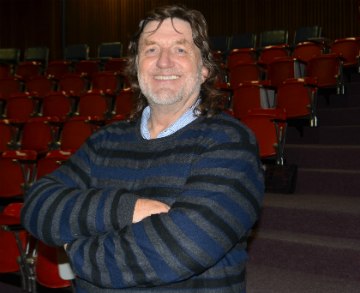Bipolar Awareness Day 2016
Bipolar disorder is an illness that causes severe mood swings, from manic highs to deep depression, and although it’s an incurable disorder, it’s treatable and manageable. In addition to an appropriate medication regimen, a strong educational and supportive component for both patient and family also play a key role in successfully managing the disorder.
Bipolar affects approximately 1% of South Africans and 26 May is National Bipolar Awareness Day. The day focuses our attention on:
- the importance of addressing the symptoms of bipolar disorder,
- identifying the best treatment options, and
- planning an appropriate course of action to improve health and wellbeing.
Living a meaningful life with bipolar disorder 
Jay Barnes, Facility Board Member of Lentegeur Hospital and bipolar sufferer, says that living normally with bipolar disorder is possible, but individuals require a combination of treatment and therapy in order to be able to live a fulfilled and successful life.
"Part of managing your disorder is acceptance. By accepting the fact that you have a lifelong illness and that it does from time to time affect your life, will empower you to deal with the good and bad days," Barnes says.
Barnes owes his success in managing his disorder to his family, especially his wife, for their love and continued support. He acknowledges that the support of family, friends and support groups are key to managing a life with bipolar.
Head of Clinical Unit and Services at Lentegeur Hospital, Dr Robin Allen, confirms that the role of family or loved ones for anybody who has a mental illness is an invaluable benefit.
“Individuals with bipolar disorder are often at risk of doing things that seem thoughtless, hurtful or even destructive while unwell. However, the support, forgiveness and understanding of loved ones, family and workplace may be what makes the difference between somebody who continues to thrive in society and one who is so guilt-ridden that he or she might seem (or is perceived to be) doomed to a life of misery and suffering,” says Dr Allen.
Barnes says that the first step to managing the disorder is learning more about the condition by making use of the resources available. “Take ownership of the illness and ask as many questions as you need to. Research and educate yourself and your loved ones about the illness and the various treatment and medication options at your disposal.
“Being diagnosed with bipolar doesn’t prevent you from doing anything; sometimes your approach in doing it is just slightly different.”
Highlighting that although there’s still a great stigma attached to bipolar disorder, Barnes mentions that many individuals are becoming aware and compassionate towards the illness. “Trust and know that you are not alone, there are over 4 million South Africans with bipolar disorder. By joining a support group, you are not only able to help other bipolar sufferers, but you also get the best therapy available – for free!”
Support groups
The support you get from those who love you and care about you plays an important role in giving you the strength to live a meaningful life. Knowledge of the illness and acceptance and recognition of the illness by all affected can prevent a lot of unnecessary pain and suffering.
A support group can play an important role in helping both the bipolar sufferer and their loved ones to come to terms with and live with the illness. These groups provide a forum for mutual acceptance, understanding and self-discovery.
Where to get help
If you or a family member need help, contact these one of these support groups:
| Western Cape Bipolar Association (Support and information on manic depression) | Cell: 082 855 3180 |
| South African Depression and Anxiety Group (SADAG) | Toll-free helpline: 0800 21 22 23 |
| Cape Support for Mental Health (Support for families of people with schizophrenia or bipolar disorder) | Tel: 021 448 0760 |
|
Anxiety Disorder Clinic (Assessment and treatment for people from all areas with anxiety disorders) |
Tel: 021 940 4442 / 4443 Tel: 021 940 4555 |
|
Depression and Anxiety Disorders Support Group (The group has a network of support across South Africa) |
Tel: 011 783 1474 / 1476 Tel: 011 884 1797 |
|
Reach Out (Support group for people living with depression) |
Tel: 088 120 4136 |
|
Support Group for Obsessive/Compulsive Disorder |
Tel: 021 671 2519 |
Additional support besides clinic visits may be necessary to promote and maintain good mental health, and you may find it helpful to join a psychosocial rehab support group in your area.
Browse the mental health directory or ask your local clinic or mental health nurse about groups in your area. Some groups are run by the Department of Health workers while others, particularly in the metro region, are run by NGOs partially subsidised by the department.


